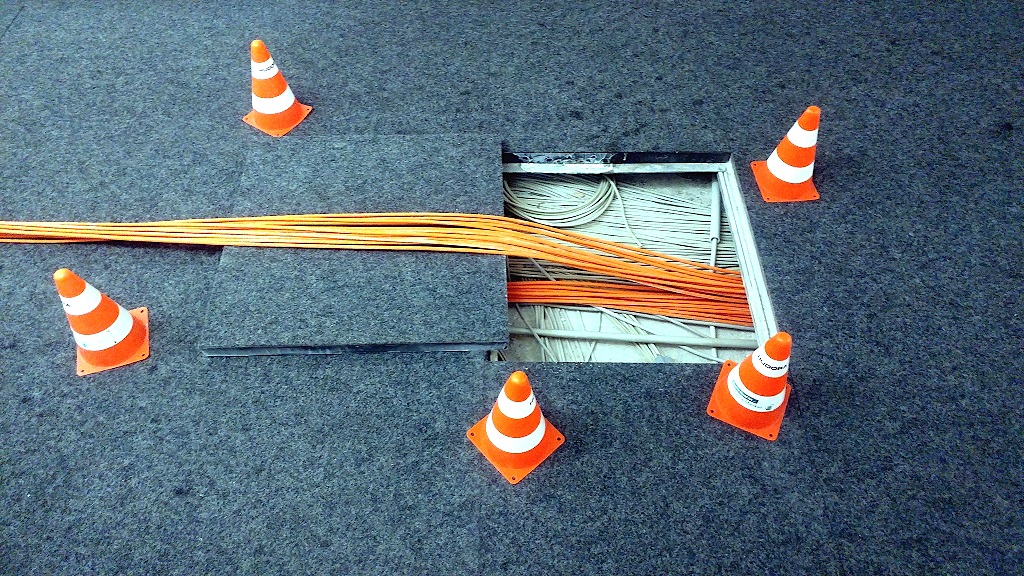Who implements IPv6, and what hinders its development
Last time we talked about the depletion of IPv4 - who owns a small fraction of the remaining addresses and why it happened. Today we are discussing an alternative - IPv6 protocol and the reasons for its slow spread - someone says that the high cost of migration is to blame, and someone claims that the technology is already outdated.

/ CC BY-SA / Frerk Meyer
IPv6 has existed since the mid-nineties - it was then that the first RFCs appeared with a description of the mechanisms of its operation (for example, RFC 1883 ). Over the years, the protocol was further developed and tested until the IPv6 Worldwide Launch took place in 2012 and it was launched by major providers - among the first were AT&T, Comcast, Internode and XS4ALL.
Later, other IT companies, such as Facebook, joined them. Today, more than half of US social network users work with the sixth version of the protocol. IPv6 traffic is growing steadily in Asian countries - Vietnam and Taiwan.
IPv6 is being promoted internationally - at the UN. Last year, one of the organization’s departments presented a plan for the transition to the sixth version of the protocol . Its authors proposed a migration model to IPv6 and made recommendations on working with prefixes for government agencies and private companies.
At the beginning of the year, Cisco published a report in which they said that by 2022, IPv6 traffic will quadruple compared with 2019 ( Fig . 9 ). However, despite the active support of the sixth version of the protocol, such a development of events seems unlikely. IPv6 is spreading around the world quite slowly - today it is supported by just over 14% of sites. And there are several reasons for this.
Firstly, technical difficulties . To migrate to IPv6, you often need to update your hardware and configure it. In the case of a large-scale IT infrastructure, this task may not be trivial. For example, the game development company SIE Worldwide Studios tried to upgrade to the sixth version of the protocol for seven years . Engineers reviewed network architecture, disposed of NAT, and optimized firewall rules. But they did not manage to completely migrate to IPv6. As a result, the team decided to abandon this idea and curtailed the project.
Secondly, the high cost of the transition . Yes, there are examples in the industry where switching to IPv6 has saved the company money. For example, one of the largest Australian Internet service providers thought that migrating to IPv6 would be cheaper than purchasing additional IPv4 addresses. However, even in this case, you will have to spend money on the purchase of equipment, retraining of personnel and the renegotiation of agreements with users.
As a result, migration to a new generation protocol for some companies flies a penny. Therefore, as the leading engineer of one of the British Internet providers says , as long as everything works smoothly on IPv4, the transition to IPv6 will definitely not happen.

/ Unsplash / John Matychuk
Experts also note that over the past ten years, the sixth version of the protocol has already managed to “become obsolete” . Engineers from Rutgers University write in their article that IPv6 (like its predecessor) is not well suited for working on mobile networks. When a user moves from one access point to another, the "old" handover mechanisms are responsible for switching base stations. In the future, when the number of IP addresses and mobile devices in the world grows significantly, this feature can lead to delays in reconnecting.
Among other factors hindering the transition to IPv6, experts highlight a slight increase in the performance of the new protocol. According to some studies, in the Asia-Pacific region, IPv4 packets are transmitted faster than IPv6 ( p . 2 ). In Africa or Latin America, there is generally no difference in data transfer rates.
Despite all the difficulties, some experts are convinced that IPv6 has a “bright future”. According to one of the developers of the TCP / IP protocol stack, Vinton Cerf, the popularity of IPv6 is really growing too slowly, but not everything is lost for the protocol.
John Curran, president of the American Internet registrar ARIN, agrees with this point of view. He says that the lack of IPv4 was felt only by large Internet providers. Small companies and ordinary users do not notice problems so far. Therefore, an erroneous impression may be created that the sixth version of the protocol “died”. And in the near future (according to Cisco forecasts) IPv6 should accelerate its spread across the planet.

/ CC BY-SA / Frerk Meyer
Who implements IPv6
IPv6 has existed since the mid-nineties - it was then that the first RFCs appeared with a description of the mechanisms of its operation (for example, RFC 1883 ). Over the years, the protocol was further developed and tested until the IPv6 Worldwide Launch took place in 2012 and it was launched by major providers - among the first were AT&T, Comcast, Internode and XS4ALL.
Later, other IT companies, such as Facebook, joined them. Today, more than half of US social network users work with the sixth version of the protocol. IPv6 traffic is growing steadily in Asian countries - Vietnam and Taiwan.
IPv6 is being promoted internationally - at the UN. Last year, one of the organization’s departments presented a plan for the transition to the sixth version of the protocol . Its authors proposed a migration model to IPv6 and made recommendations on working with prefixes for government agencies and private companies.
Materials from our blog on Habré:
At the beginning of the year, Cisco published a report in which they said that by 2022, IPv6 traffic will quadruple compared with 2019 ( Fig . 9 ). However, despite the active support of the sixth version of the protocol, such a development of events seems unlikely. IPv6 is spreading around the world quite slowly - today it is supported by just over 14% of sites. And there are several reasons for this.
What slows down the implementation
Firstly, technical difficulties . To migrate to IPv6, you often need to update your hardware and configure it. In the case of a large-scale IT infrastructure, this task may not be trivial. For example, the game development company SIE Worldwide Studios tried to upgrade to the sixth version of the protocol for seven years . Engineers reviewed network architecture, disposed of NAT, and optimized firewall rules. But they did not manage to completely migrate to IPv6. As a result, the team decided to abandon this idea and curtailed the project.
Secondly, the high cost of the transition . Yes, there are examples in the industry where switching to IPv6 has saved the company money. For example, one of the largest Australian Internet service providers thought that migrating to IPv6 would be cheaper than purchasing additional IPv4 addresses. However, even in this case, you will have to spend money on the purchase of equipment, retraining of personnel and the renegotiation of agreements with users.
As a result, migration to a new generation protocol for some companies flies a penny. Therefore, as the leading engineer of one of the British Internet providers says , as long as everything works smoothly on IPv4, the transition to IPv6 will definitely not happen.

/ Unsplash / John Matychuk
Experts also note that over the past ten years, the sixth version of the protocol has already managed to “become obsolete” . Engineers from Rutgers University write in their article that IPv6 (like its predecessor) is not well suited for working on mobile networks. When a user moves from one access point to another, the "old" handover mechanisms are responsible for switching base stations. In the future, when the number of IP addresses and mobile devices in the world grows significantly, this feature can lead to delays in reconnecting.
Among other factors hindering the transition to IPv6, experts highlight a slight increase in the performance of the new protocol. According to some studies, in the Asia-Pacific region, IPv4 packets are transmitted faster than IPv6 ( p . 2 ). In Africa or Latin America, there is generally no difference in data transfer rates.
What are the prospects
Despite all the difficulties, some experts are convinced that IPv6 has a “bright future”. According to one of the developers of the TCP / IP protocol stack, Vinton Cerf, the popularity of IPv6 is really growing too slowly, but not everything is lost for the protocol.
John Curran, president of the American Internet registrar ARIN, agrees with this point of view. He says that the lack of IPv4 was felt only by large Internet providers. Small companies and ordinary users do not notice problems so far. Therefore, an erroneous impression may be created that the sixth version of the protocol “died”. And in the near future (according to Cisco forecasts) IPv6 should accelerate its spread across the planet.
What we write about in the VAS Experts corporate blog:
All Articles